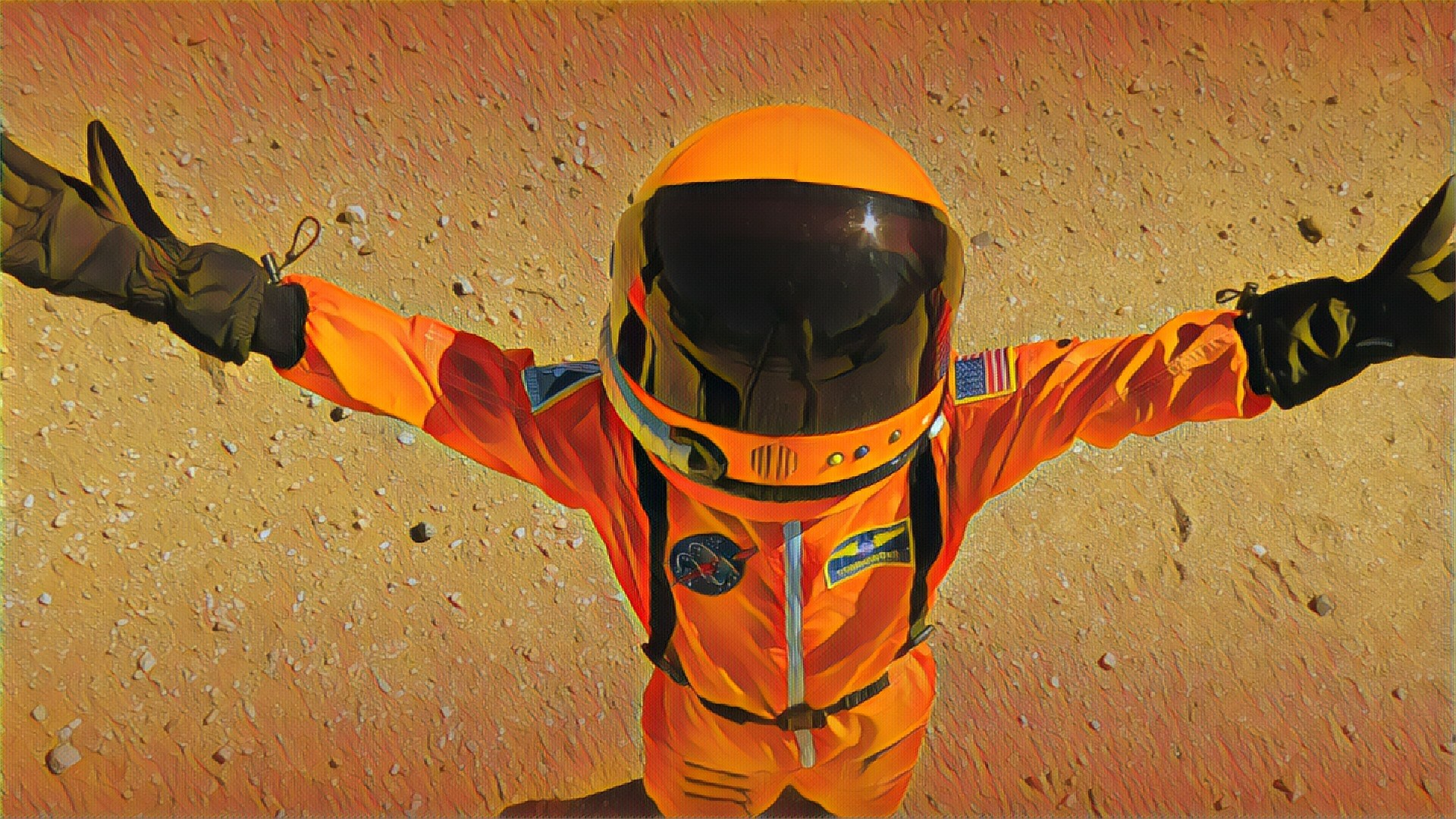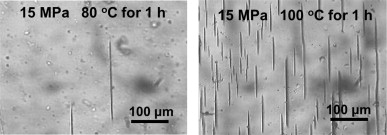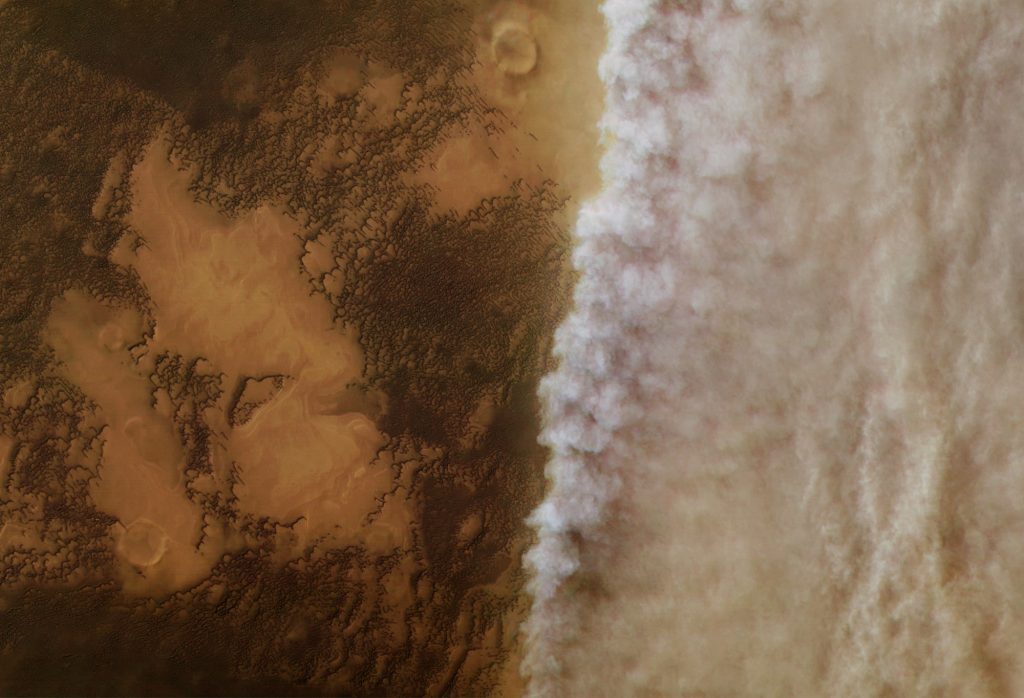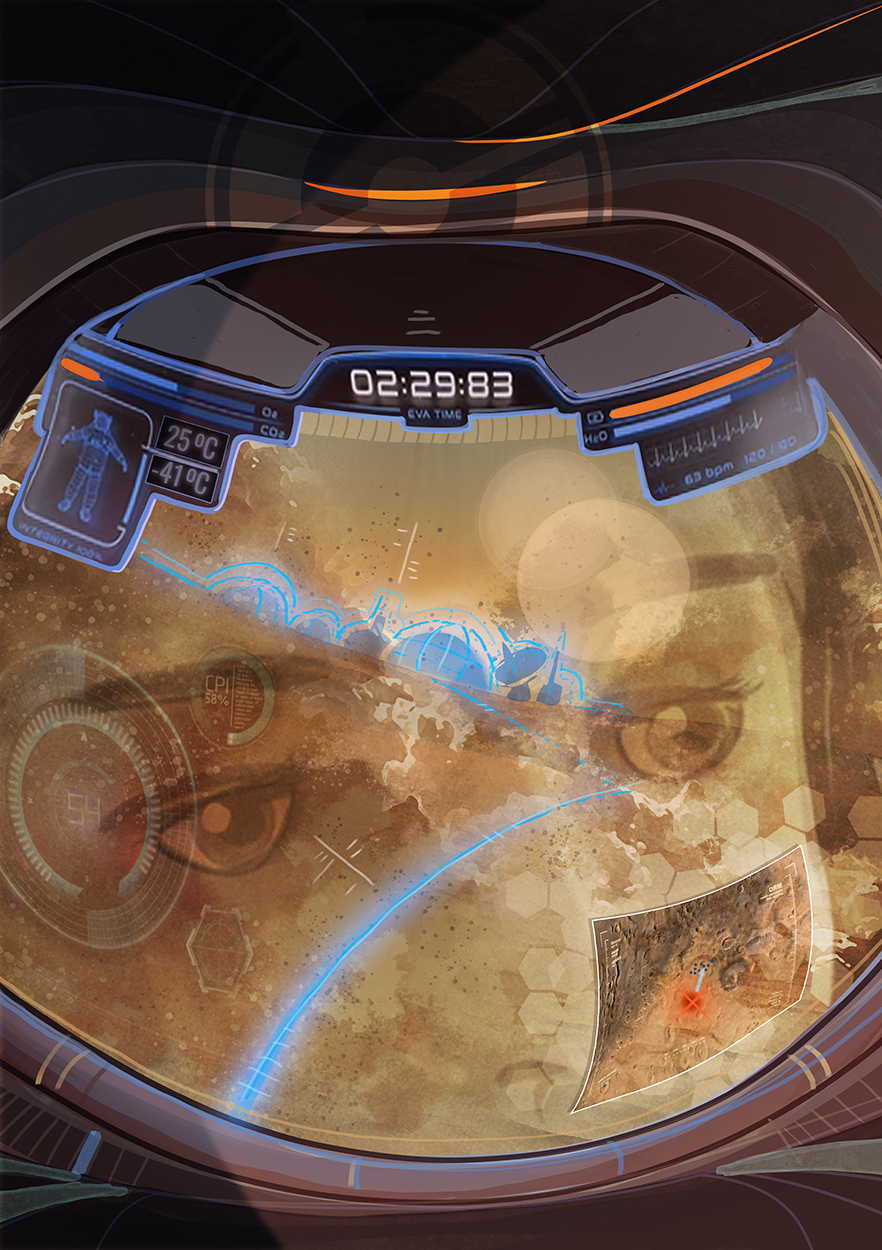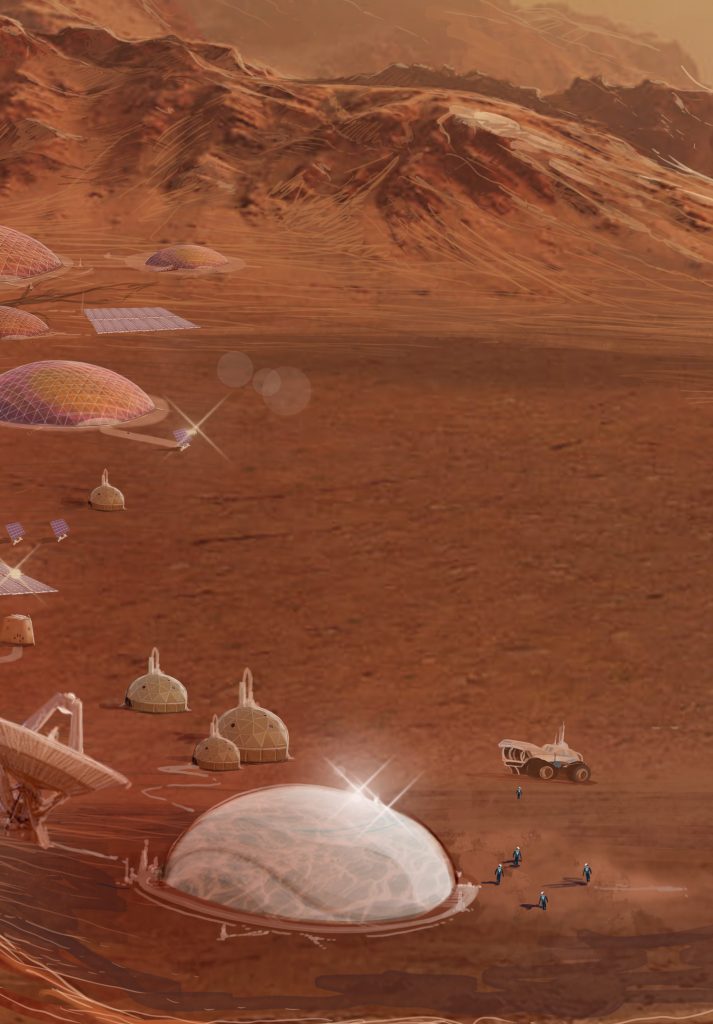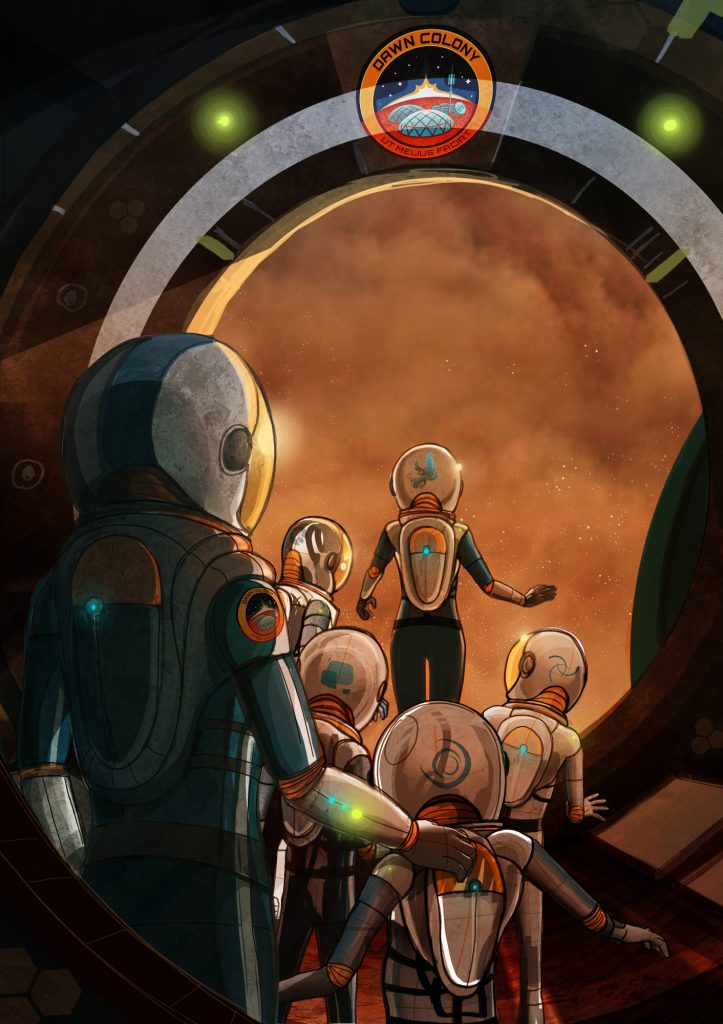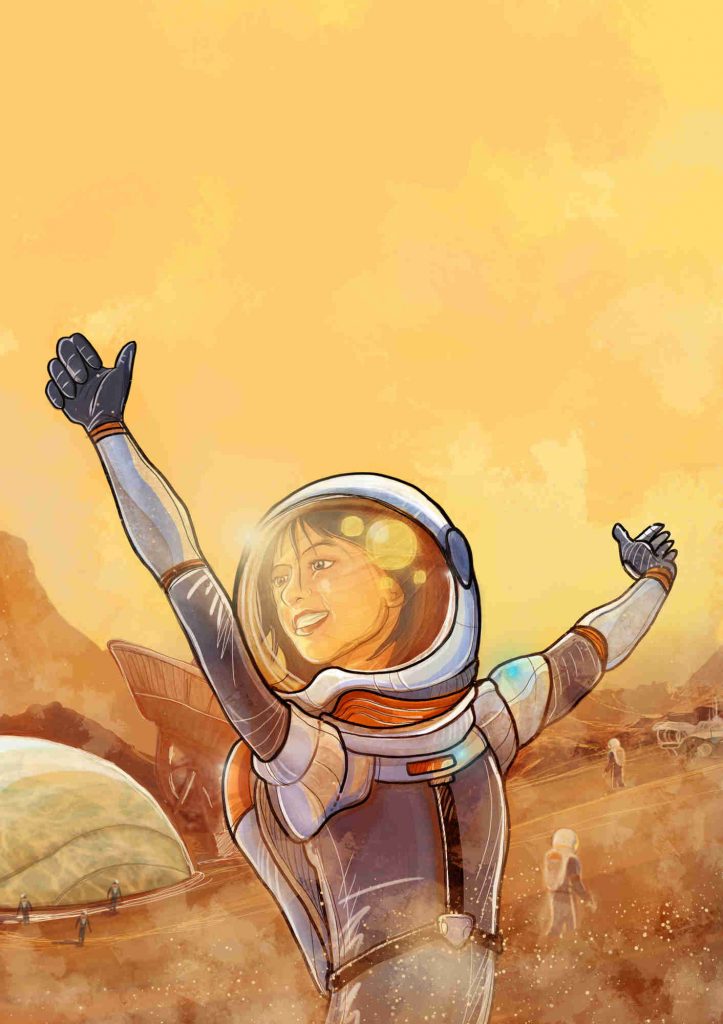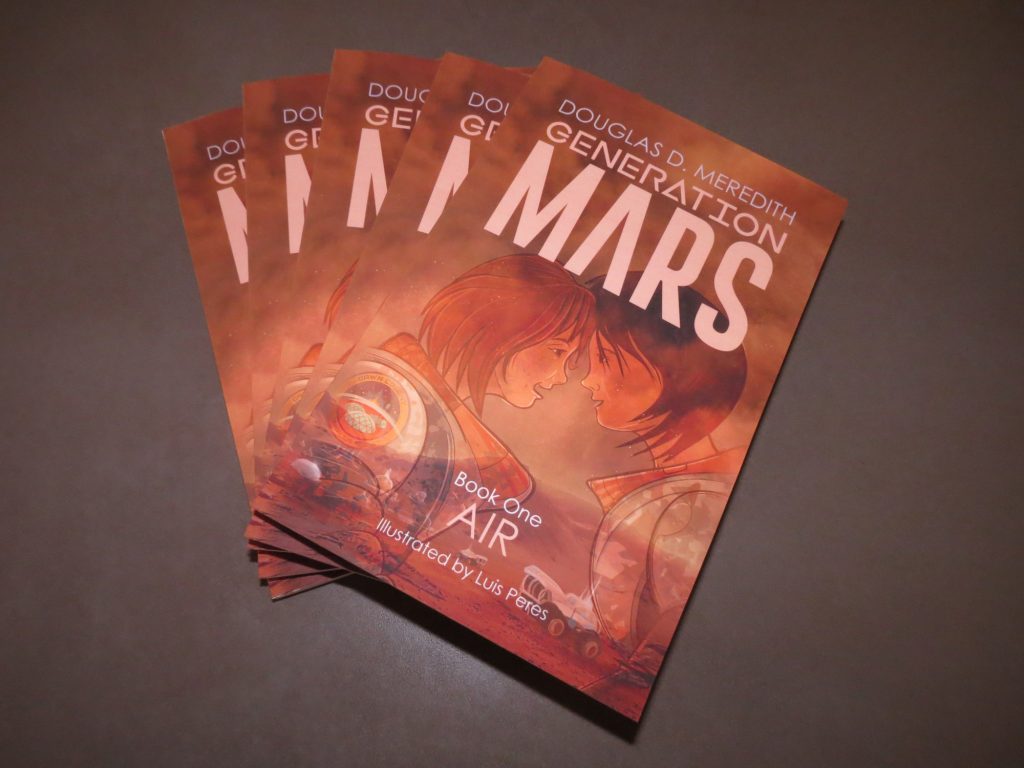As the wind of the dust storm blew, billions of dust particles collided with and slid past the primary surface antennae array. Over time, this rubbing of dust on metal caused an electrical charge to build up on the array. Rub a balloon on your hair and stick it to the wall. Rub your socked feet in the carpet on a winter evening and then touch your sibling. These are examples of such static charges.
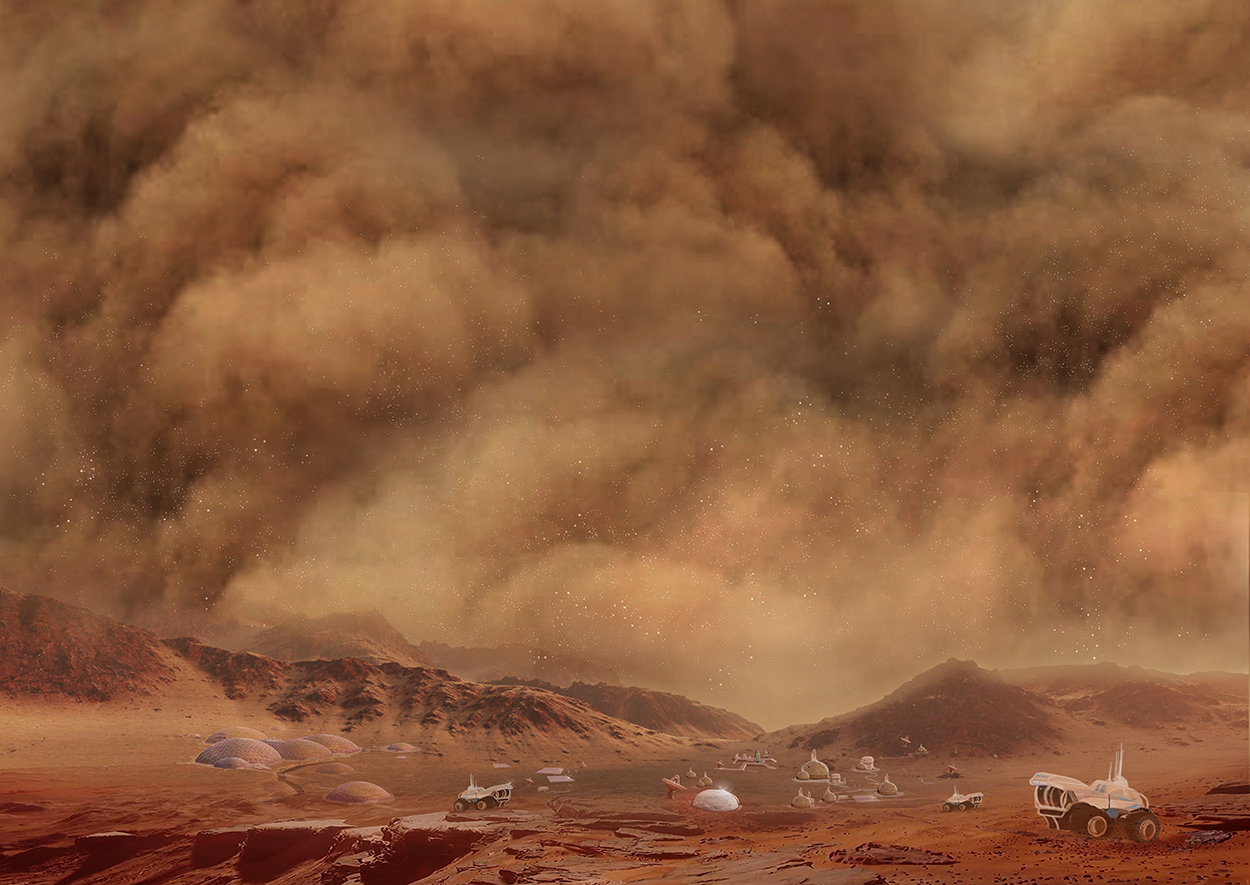
Air: Generation Mars, Book One
Preorder now: https://www.amazon.com/Air-Generation-Mars-Boo…/…/1733731024
(image: Luis Peres)
